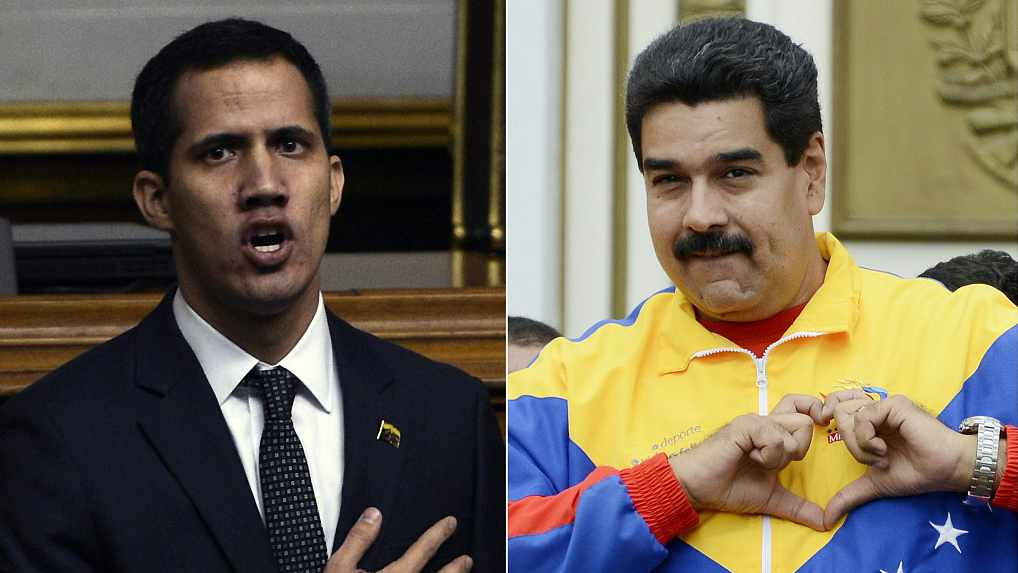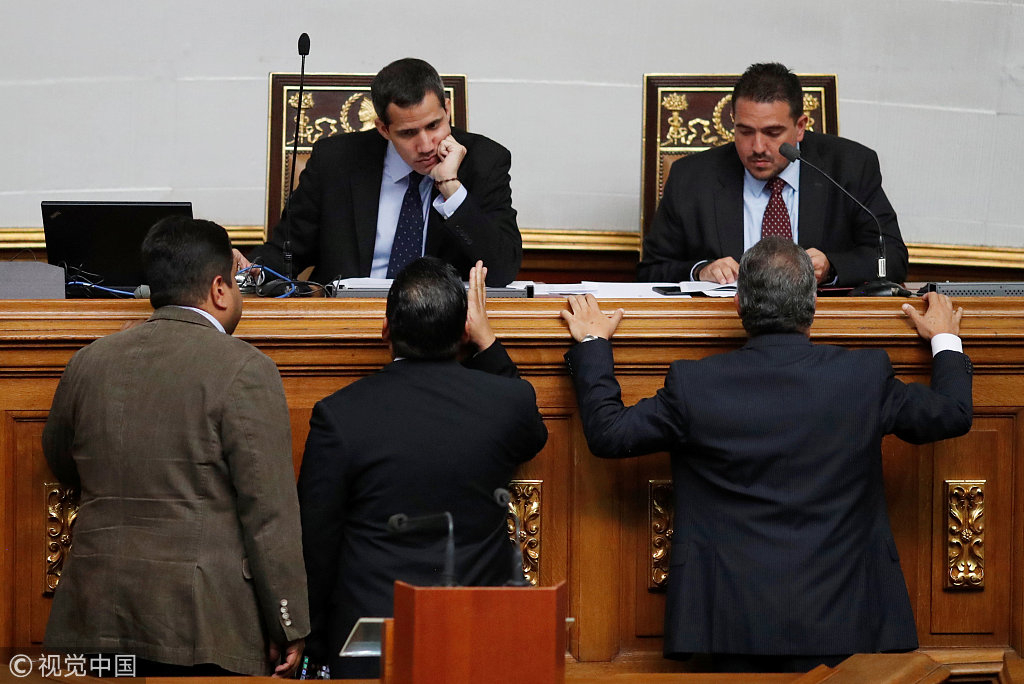
World
08:47, 14-Feb-2019
U.S. Congress won't support military intervention in Venezuela
CGTN

Congress will not support U.S. military intervention in Venezuela despite comments hinting at such involvement by U.S. President Donald Trump, the Democratic chairman of the House Foreign Affairs Committee said on Wednesday.
U.S. Representative Eliot Engel expressed concern about Trump's hints that military action was an option in Venezuela, where President Nicolas Maduro is under intense international pressure to step aside and the country's economy is in chaos.
“I do worry about the president's saber-rattling, his hints that U.S. military intervention remains an option. I want to make clear to our witnesses and to anyone else watching: U.S. military intervention is not an option,” Engel said at the opening of a hearing on the volatile political situation in the nation of the Organization of the Petroleum Exporting Countries (OPEC).
New board for key U.S.-based oil subsidiary
Venezuelan opposition leader Juan Guaido Wednesday announced the appointment of a new board for Citgo, the U.S.-based arm of state oil firm PDVSA that until recently was a major source of revenue for Maduro's embattled regime.
“We have taken a step forward with the reconstruction of PDVSA,” Guaido said on Twitter, just after the congress named the directors. “With this decision, we are not only protecting our assets, we also avoid continued destruction.”

Venezuelan opposition leader and self-proclaimed interim president Juan Guaido attends a session of the Venezuela's National Assembly in Caracas, Venezuela, January 29, 2019. /VCG Photo
Venezuelan opposition leader and self-proclaimed interim president Juan Guaido attends a session of the Venezuela's National Assembly in Caracas, Venezuela, January 29, 2019. /VCG Photo
Maduro lashed out at Guaido, saying in an interview that he would face the courts “sooner or later” for violating the constitution after Guaido invoked constitutional provisions last month to assume an interim presidency.
PDVSA's crude output has slumped to 70-year lows, due to crushing debts, widespread corruption, and little maintenance of its infrastructure.
The Trump administration, which backs Guaido, imposed sanctions on Venezuela's oil sector on January 28, aimed at curbing exports to the United States and upping the pressure on Maduro.
The nominations fuel a growing duel for control between Guaido and Maduro, who has promised he will not allow Citgo to be “stolen.”
The mechanics of how the new board would take over are unclear, and there are likely to be court challenges to the board's authority, people familiar with the deliberations say.
(Cover: The new president of Venezuela's National Assembly Juan Guaido (L) at his inauguration ceremony in Caracas, January 5, 2019, and Venezuela's President Nicolas Maduro at a meeting with students at Miraflores. /VCG Photo )
Source(s): Reuters

SITEMAP
Copyright © 2018 CGTN. Beijing ICP prepared NO.16065310-3
Copyright © 2018 CGTN. Beijing ICP prepared NO.16065310-3